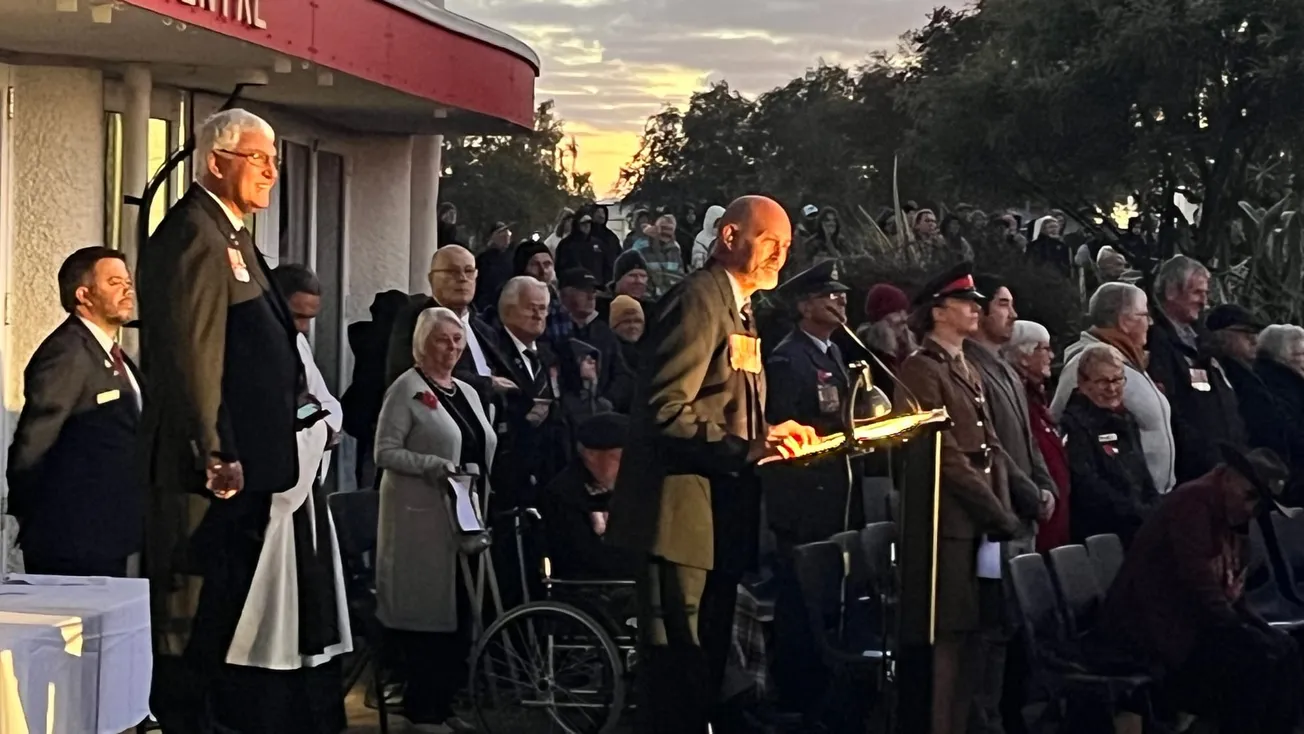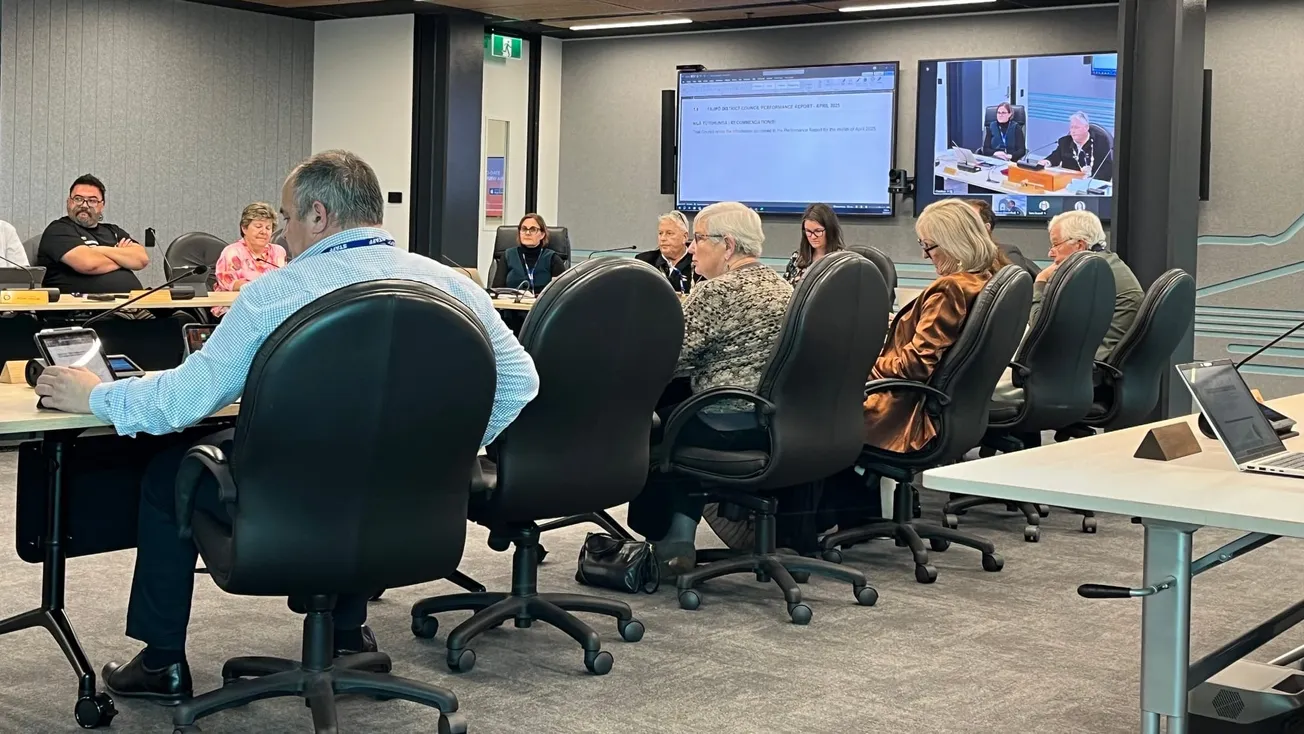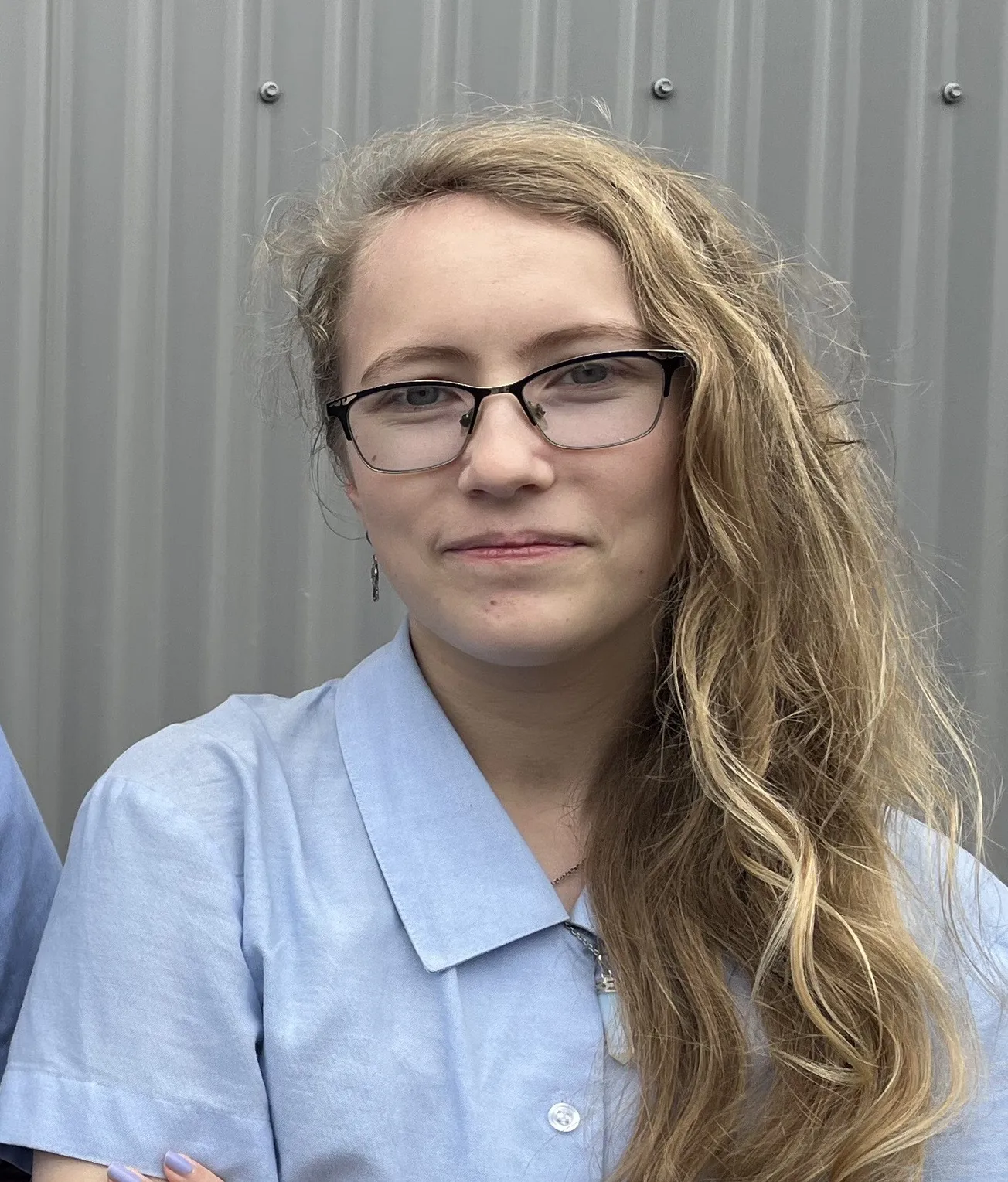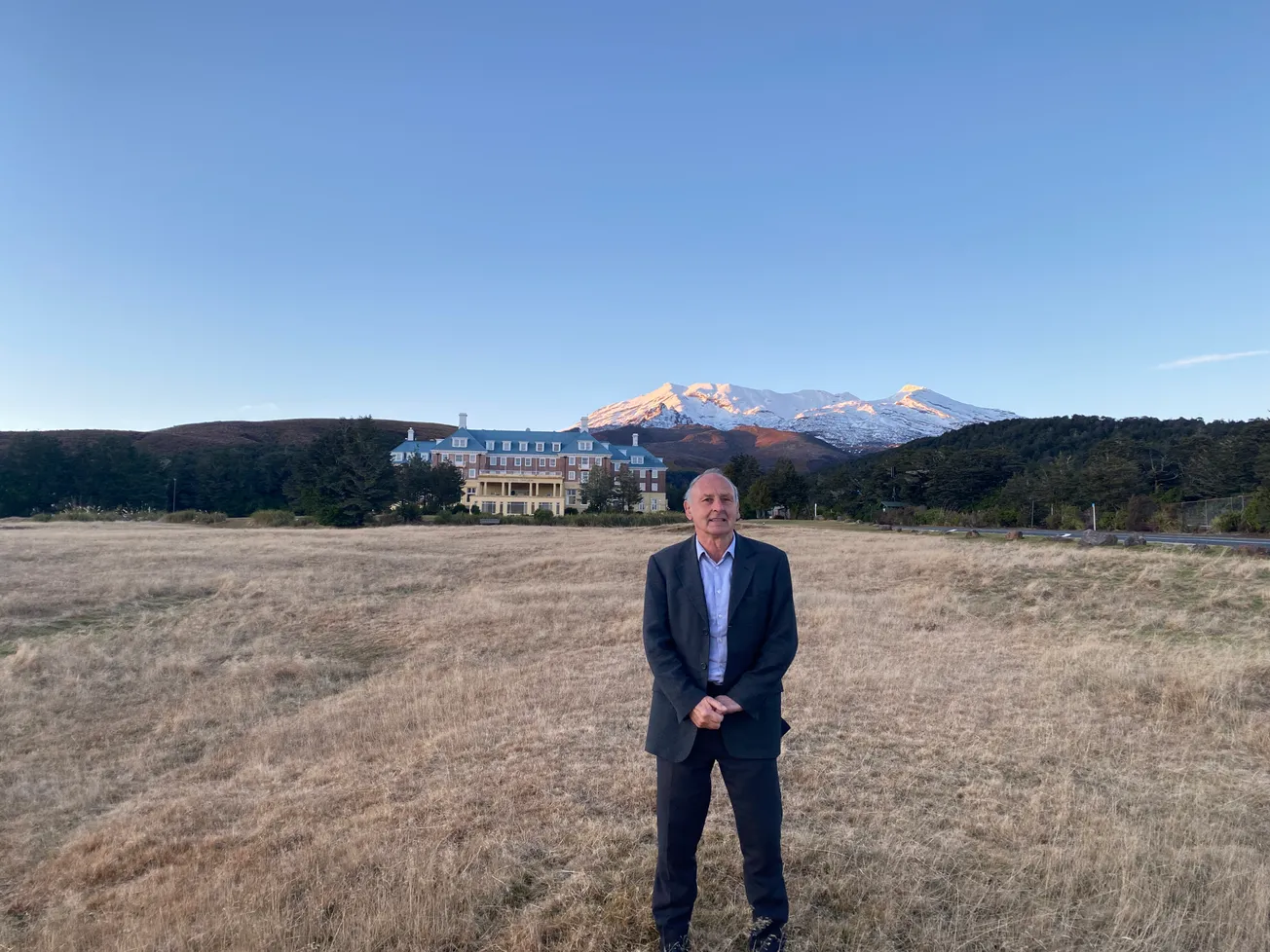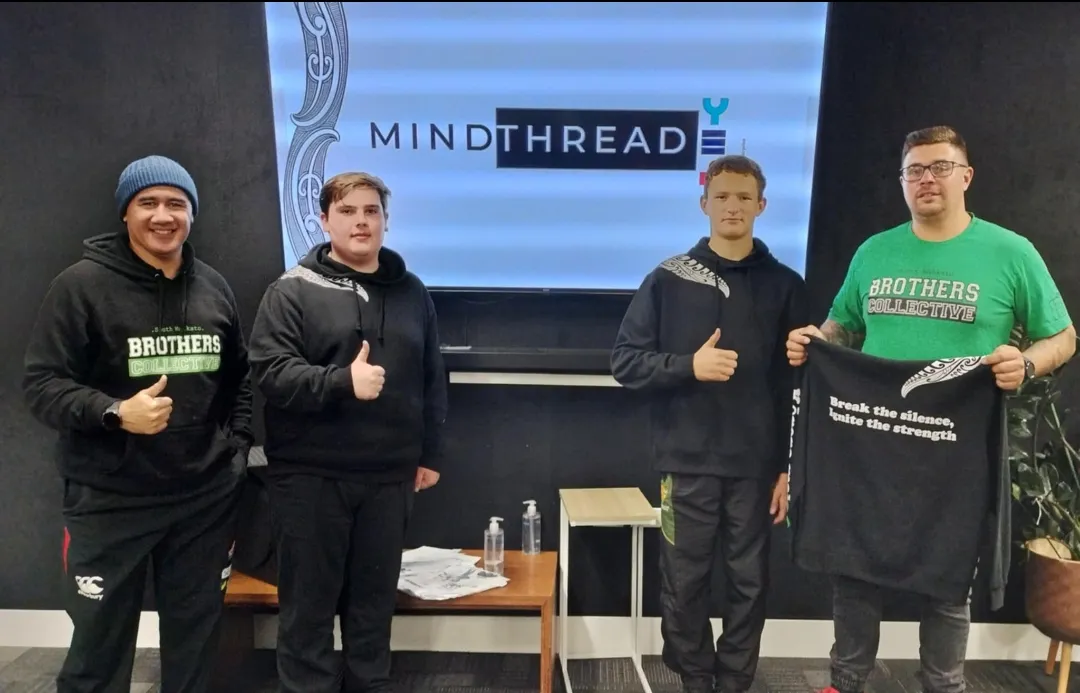Friday’s Anzac Day commemorations around the Taupō District were well attended, 110 years since the ill-fated Gallipoli campaign in World War I and 80 years since the conclusion of hostilities in World War II.
Speaking at the dawn ceremony in Taupō, presided over by Reverend Robert Kereopa, with thousands in attendance, former New Zealand Army staff sergeant Geoff (Snow) Rameka acknowledged the soldiers who “gave everything for our freedom.”
“You are our heroes. To our servicemen and women in uniform, you are our heroes tomorrow and to our children who grow up to wear the military uniform in the future you will be our future heroes.
“The world is becoming a more unstable and dangerous place, hold strong to our Anzac alliance, for we might just need it in future.”
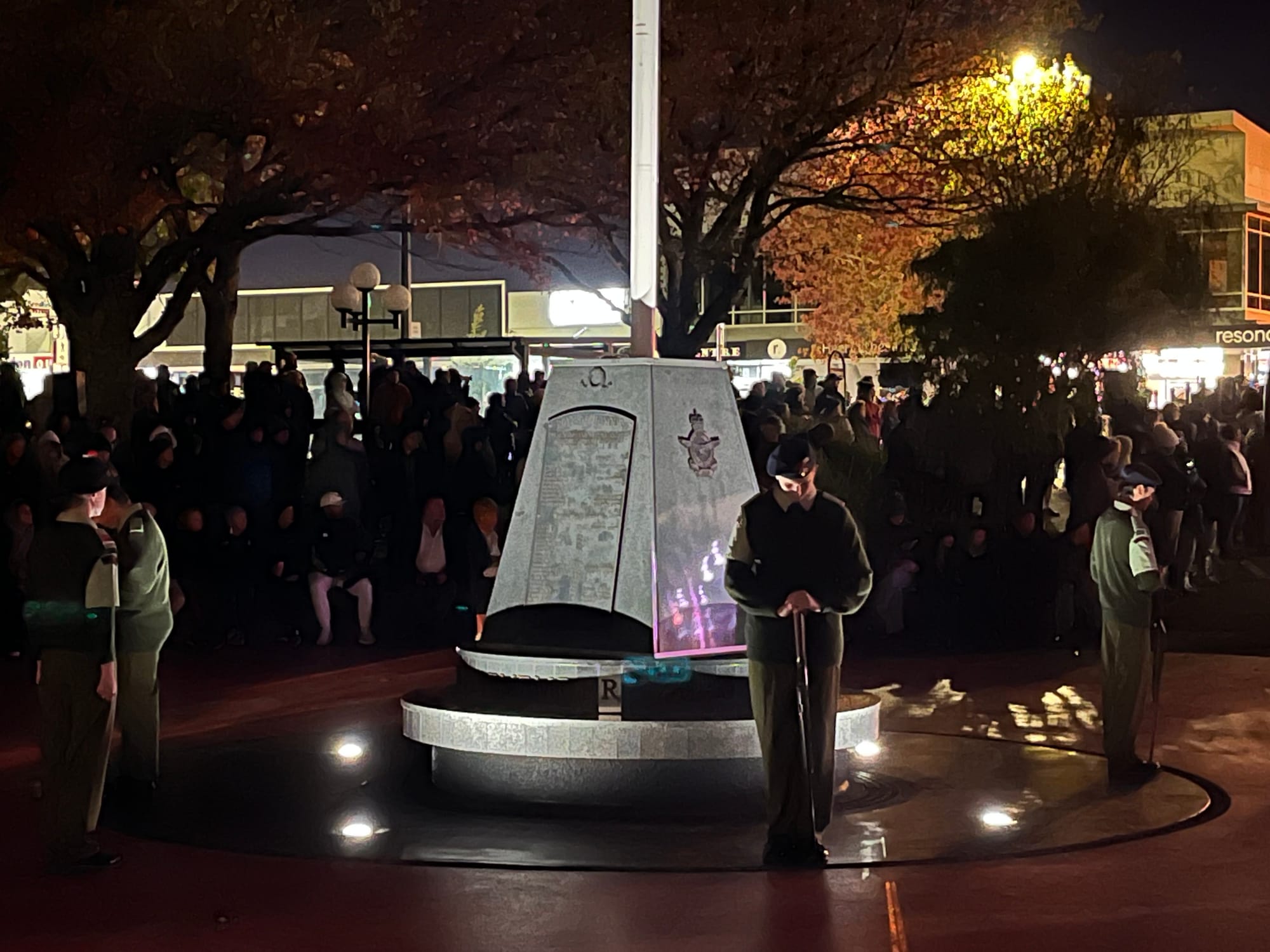
In his address to the civic service at the Great Lake Centre cenotaph Taupō mayor David Trewavas said the day stood as a solemn reminder of the resilience and bravery demonstrated by New Zealand’s soldiers – a day to reflect on the profound impact of their sacrifices.
The story of Royal Navy Lieutenant Commander N.V.J.T. Thew, grandfather of Taupō resident Simon Thew, shed light on the harrowing experiences of prisoners of war during World War II, he said.
In 1942, Commander Thew commanded the British destroyer HMS Jupiter, which was sunk during the Battle of the Java Sea. Adrift in a small lifeboat with five crew members for 40 hours without food or water, they were eventually picked up - only to endure three and a half years in a Japanese prison camp in Java. For two years, his family lived in uncertainty, unaware if he was alive or dead, until he managed to smuggle a letter out in 1944.
The survivors of HMS Jupiter and HMS Electra faced relentless hardships in camps such as Surabaya and Bandoeng. They endured brutal treatment, insufficient food, and rampant diseases like malaria and dysentery. Yet, their spirits remained unbroken.
The tireless dedication of medical personnel, who cared for the sick and wounded under such dire conditions, stood as a testament to the resilience and solidarity of our soldiers, said Trewavas.
Lt Commander Thew’s experience also underscored the importance of leadership and morale.
“Even in the face of unimaginable adversity, strong leadership proved vital in maintaining discipline and hope among the prisoners. The lessons drawn from these experiences continue to remind us of the fortitude and determination that define our armed forces.
“As we commemorate Anzac Day, let us honour the unwavering commitment and enduring spirit of our soldiers. Their stories of courage and resilience inspire us to reflect on the true cost of freedom. We owe an immeasurable debt of gratitude to those who have served and those who continue to serve our nation.”
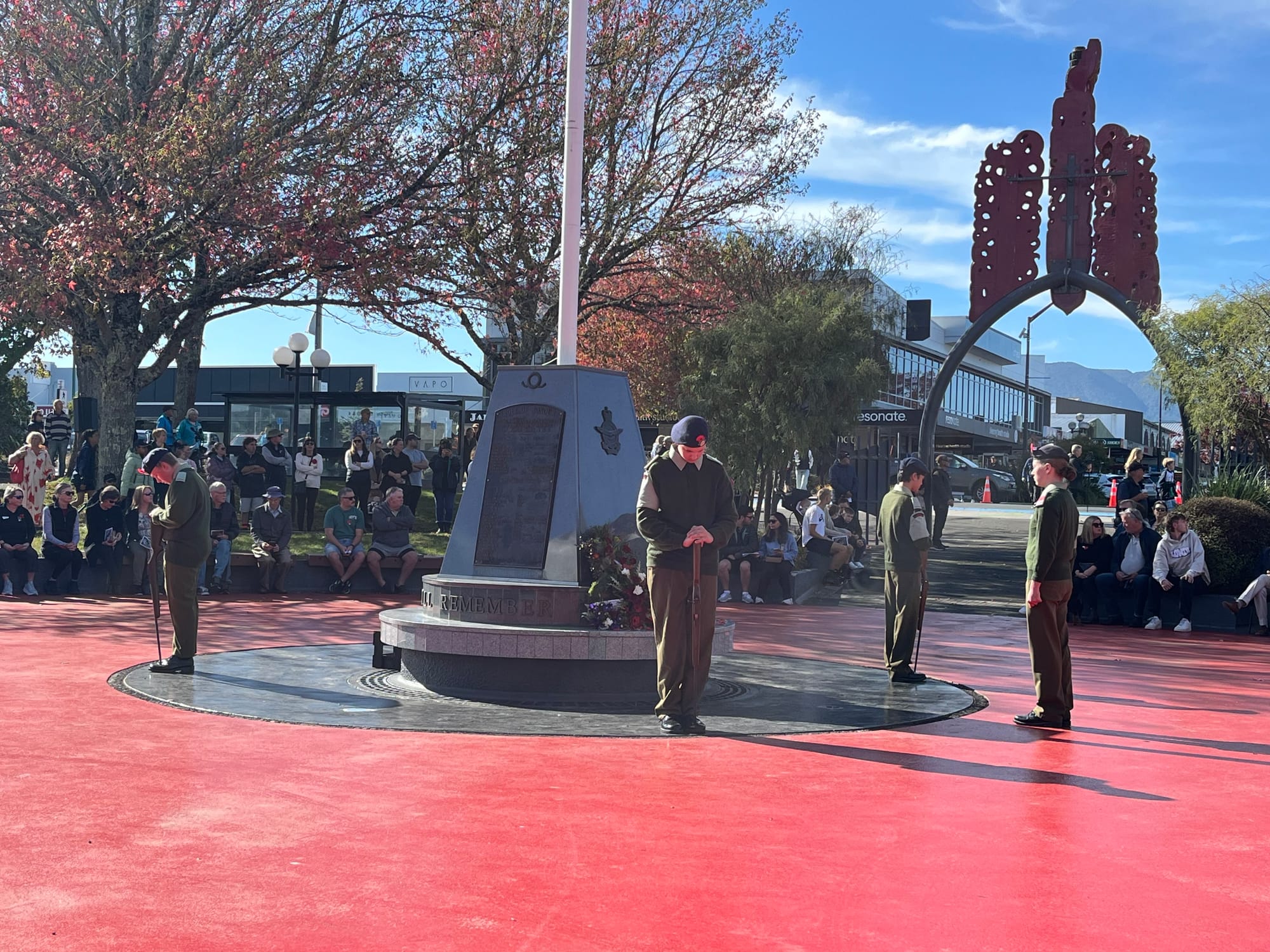
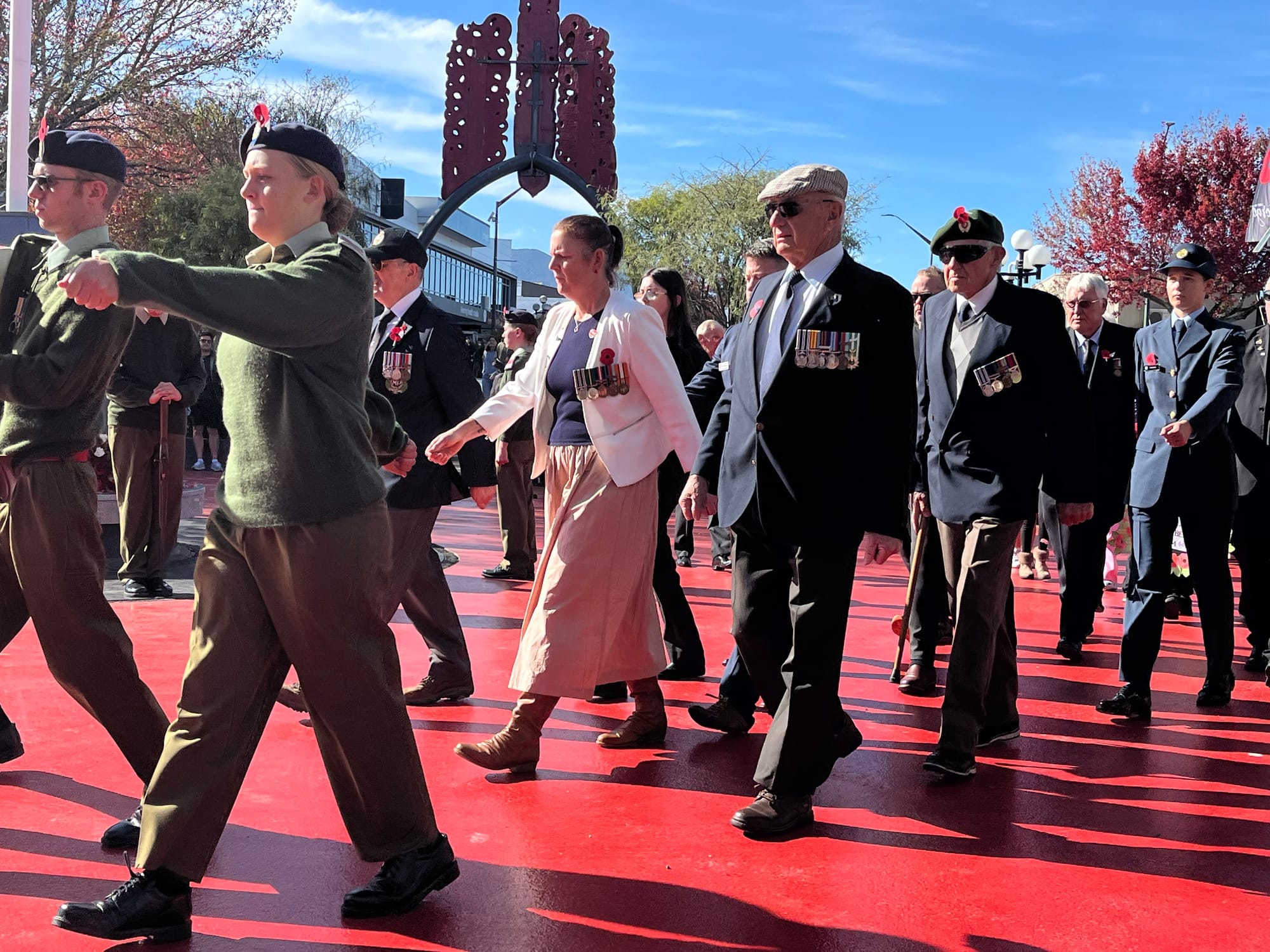
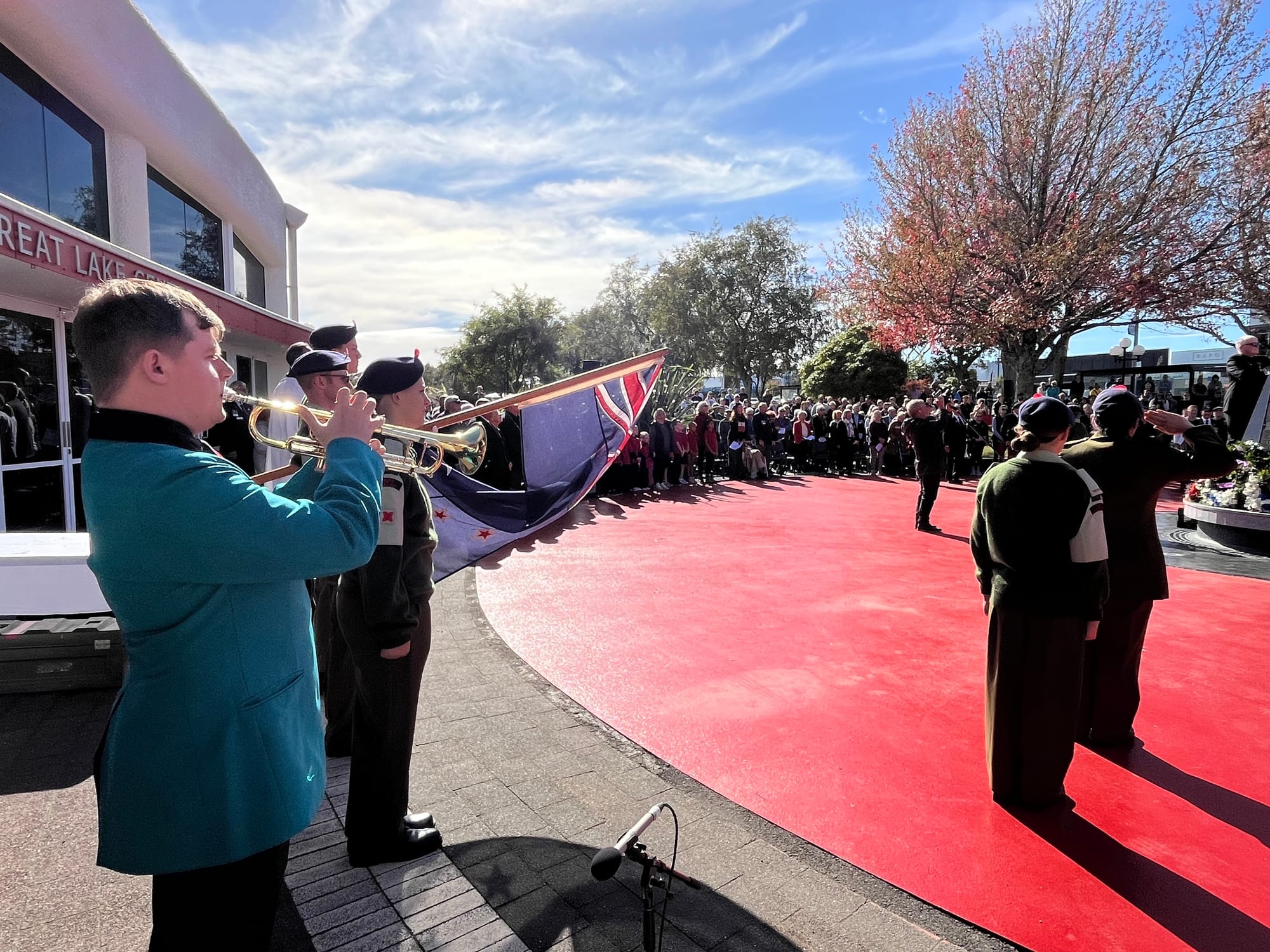
Left: Richard Paull of the Taupō Brass Band playing the Last Post at the mid morning civic ceremony. Middle: The parade marching in during Taupō's Anzac Day civic service. Right: Members of Taupō Cadets at the cenotaph during Taupō's Anzac Day civic service.
In reading out her winning RSA School Essay Competition entry, Year 12 Tauhara College student Angela Schur related current events in Ukraine and Gaza to the day’s acknowledgement of those in the past “as a reminder for what we can hope to avoid in the future.”
Her exploration of the competition topic ‘In 2025, does New Zealand have the capability to protect its citizens amid the rising geographical and political tensions?’ noted that as well as military means, an additional element of strength was using diplomacy and developing international relationships.
New Zealand still had strong ties to other countries in the Commonwealth, particularly Australia, Schur said.
“We are major trading and economic partners, and are both involved in the Pacific region, where issues such as climate change pose a shared risk.”
Free trade agreements, membership of the United Nations, Five Power Defence Arrangements, and being a partner of NATO, were also significant.
“New Zealand’s willingness to step in and help is also a reason we are respected… As well as building relationships worldwide, this shows that despite being far from the destruction, we still want to help those in need and do the right thing.
“‘Doing the right thing’, both now and in the past, often means ‘sticking to our beliefs’. New Zealand has made decisions not just because of our relationships with other countries, but also because of our own views. For example, New Zealand currently provides training to the Ukrainian Army in its fight against Russia.
“Here in 2025, it is not just the military but our strong international relationships, willingness to help, and sticking to our beliefs that assists New Zealand to protect its citizens as tensions rise throughout the world.”

